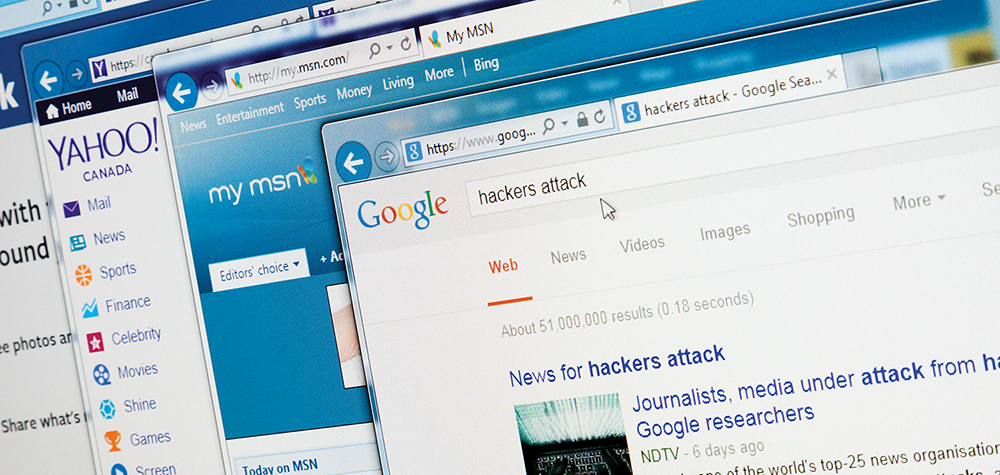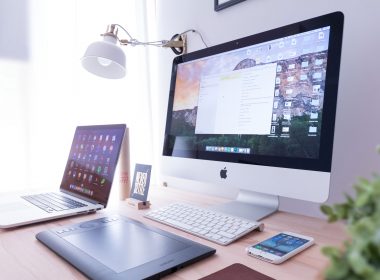In the battle of Journalism v Google, who is prepared to blink first? Lawyers and media experts discuss what is on the line in the controversial media bargaining code.
“Let me just have a quick Bing”, “I Binged it”, “what does Bing say?”: for a few frightening days in early 2021, our frantic everyday Google searches of symptoms and nearby restaurants were under threat. Would Australians be forced to migrate to this seldom-accessed search alternative?
For three years, the ACC’s Digital Platforms Inquiry examined the uneasy marriage between local news organisations and the tech behemoths that inflicted considerable damage on their traditional revenue streams of print advertising and classifieds pages. The inquiry found Australian publishers are deeply reliant on audience referrals by Google and Facebook linking readers to their articles.
To level the playing field, it proposed a media bargaining code: one Google described as “heavily skewed in favour of publishers”. Prime Minister Scott Morrison, in turn, declared he would not be bullied by threats Google would yank its search function from the Australian internet-o-sphere in opposition to the “unworkable” new law.
The code enshrined in the Competition and Consumer Act 2010 (Cth) intends for digital platforms like Google to pay for news from Australian media outlets when shared as a link via their platform. This is mainly done through the search function on Google or the news feed on Facebook. It requires Google and Facebook to negotiate with news organisations to pay for news content and news links.
As D-Day of the debate in federal parliament neared, 11th hour deals were offered up, with both Seven West Media, News Corp and Nine announcing agreements with Google in the same week the Bill passed the lower house. These negotiations eased fears from consumers that the search engine – so ubiquitous it is now a verb – would be no more on our shores.
Facebook, however, opted for the nuclear negotiation option. From February 18 until a last minute deal five days later, the social media company banned publishers and users in Australia from sharing or viewing any news articles on its platform.
In addition to the Facebook pages of publications like The Sydney Morning Herald, many others, including government agencies providing updates on the COVID vaccine rollout and even the Law Society of NSW, were briefly affected by the mass blocking.
Just like our COVID contact tracers, Australia’s code could soon be the gold standard.
Across the Commonwealth, Canadian lawmakers are considering similar legislation that would force social media companies to pay local news organisations for sharing their content. Other countries in the European Union, including Spain, have also negotiated deals, steeped in copyright law whereby the tech giants pay for sharing “snippets” of stories through links — but not the link itself.
How did this happen?
Hannah Marshall, partner at Marque Lawyers and expert in media and advertising laws, told LSJ the present uproar was “not a copyright issue, that’s a not a competition law issue: it’s simply reflective of the government’s policy position.”
“It certainly will be unprecedented insofar as it creates this obligation to pay for links,” she said.
“I think my concern is that the code is being sold as a legal issue and in fact it is a policy decision under which digital platforms will subsidise the news industry in Australia. Treating it as something other than that is, I think, potentially misleading.
“There is no legal basis on which Google or Facebook should have to pay to supply a link to a news story. In fact, that supply of the link is hugely valuable to the news publishers. So, they are giving them something of value and then paying to give them something of value. It just doesn’t make sense economically or legally.
“I think everybody looks at this and thinks, ‘absolutely digital platforms should pay when they’re using their news content’, and I don’t think Google and Facebook are disagreeing with that. But I think it’s this question of the link that has really brought to the forefront that this isn’t a copyright issue, that this isn’t a legal issue, this is effectively a tax on the digital platforms.”
Marshall says Facebook’s decision “puts on show the fact that the media code has failed to protect that supply, leaving the news industry exposed.”
“By starting a policy- driven fight with the platforms, the government has created this scenario which may lead to reduced diversity in Australian journalism.”
Derek Wilding, co-director for the Centre for Media Transition at the University of Technology Sydney, told LSJ “the time has well and truly arrived for platforms to contribute financially in a way in which the news media can be sustained”.
“It is high time for platforms to be brought into a regulatory framework in some context,” he said.
“They are participating within the current media environment and they need to play a part, given this is something that society considers to be an important public function, that is the presence of public interest journalism.”
How much is at stake?
Google currently snares more than 90 per cent of the search engine market in Australia. The few other options include Bing (which swiftly endorsed the code and declared its intention to invest heavily in the Australian market), Yahoo and private sites like DuckDuckGo (a site enjoying a rise in popularity thanks to its public commitment to protect users’ privacy).
Marshall fears the smaller publications have the most to lose.
“NewsCorp and Nine have a whole heap of other business areas and websites, which will generate revenue so that they will survive the storm if for whatever reason those audience referrals are switched off,” she told LSJ.
“But many others won’t. Some small and medium sized publishers I’ve acted for get up to 90 per cent of their audience via Google or Facebook or both: so, the numbers are very stark.
“What the digital platforms inquiry found was that news publishers were getting upwards of 50 per cent of their audience via Google and Facebook, which meant that they were entirely beholden to them.
“If that audience referral was switched off, many of them would suffer. Particularly the smaller and medium sized independent publishers, the digital native publishers, they’re the ones that are most at risk rather than NewsCorp and Nine. It’s the divergent voice that is at risk.”
“If that audience referral was switched off, many of them would suffer. Particularly the smaller and medium sized independent publishers, the digital native publishers, they’re the ones that are most at risk rather than NewsCorp and Nine. It’s the divergent voice that is at risk.”
As Morrison declared “let me be clear, Australia makes our rules for things that are done in Australia” and that the government “would not respond to threats” by the companies to disable their search functions, Google continued to call the bluff in what seemed like an impending messy divorce. It warned in an open letter; “if the Code were to become law in its current form, we would have no real choice but to stop making Google search available in Australia”.
On February 12 the senate economic committee tasked with assessing the bill determined the code should pass with no amendments – and peace summit agreements between the publishers and Google were inked the following week.
Despite the war of words, Wilding said: “I think until Facebook cut off all news providers and a number of other information sources everyone has behaved quite reasonably, given this is a negotiation of a kind we have never seen before.”
“It would be expected that both sides would ramp up the rhetoric. But Facebook has just demonstrated what the ACCC has been arguing all along – it has tremendous influence within the Australian market and its actions have the potential to damage the businesses that rely on it.”




